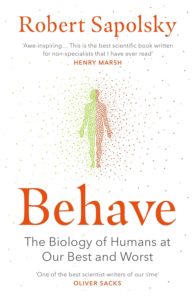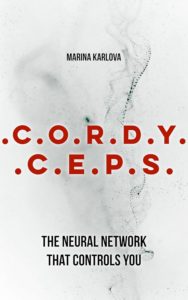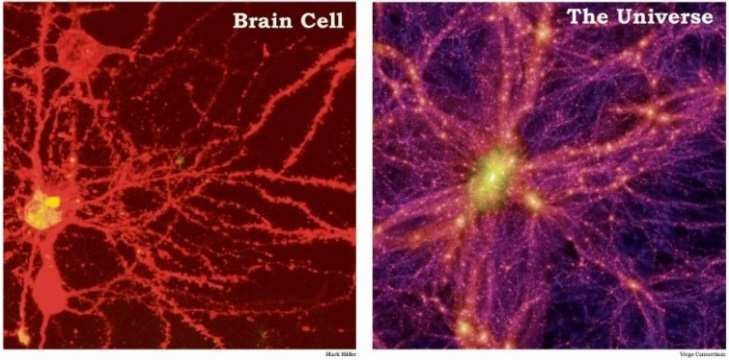by Kora Klapp
YouTube’s algorithms help bubbles to form. Not the ones in your bathtub, but the social ones. YouTube shows me what it believes will interest me because it has interested others who watch similar videos. This makes YouTube’s suggested selections rather comfort zone-friendly and somewhat boring for me. There’s little challenge to rub against them. Together we get upset about wars, incompetent politicians, and the conformist society, or explore new findings in brain science, biology, and self-healing. With this in mind, YouTube suggested the video “Pathologized Intelligence: When Mental Health Looks Like a Disorder.”
This finally gave me some real food for thought. Because it concerns my views, my offers, and my expertise: Not only does META-Health presuppose and closely examine meanings of mental and physical illnesses, but I also had my own experiences with mania and depression, and during their healing, with the radical expression of emotions, without the social restraint that is supposed to simplify our coexistence. I had profound conversations about our sick societies, their traumas, and their shackles. I was, and still am, convinced that these systems are themselves organisms that show the same imprinting mechanisms and interactions as individuals. Healing these systems is needed to allow for or even to produce health – because every diseased state is also a coping strategy.
Trauma or Parasite?
The author of the above video, designer Marina Karlova, claims more than that. She sees society infected by a parasite that, in order to ensure its survival, hijacks our thoughts and feelings and turns us into zombies who then help infect and subjugate those around us. With incomprehension, gaslighting, and a moral cage full of distortions of meaning.
This sounds like bad sci-fi, and like Stockholm syndrome. But doesn’t the scenario also sound familiar from our history and reality? Marina Karlova gathers followers who have had similar experiences. She speaks out against psychotherapy and psychotherapists, as they work within the infected system and label otherness as diseased, thus only adapting the individual instead of changing and healing the system that provoked the reaction.
In another one of her videos, she aptly describes what happens during trauma:
“Trauma is a moment in which the system loads a control algorithm into consciousness through a vulnerability”
– meaning that during a UDIN (an unexpected, dramatic, isolated, and helpless moment), warning triggers and certain beliefs are installed that serve to protect the traumatized by avoiding conflict. And Karlova claims that trauma work and therapy don’t change this, but rather reinforce the pattern.
Science and Worldview
 She isn’t alone in recognizing the dilemma of mental health. Interestingly, neurobiologist and primatologist Robert Sapolsky also writes in his book “Behave” that he attributes more realism to the state of depression than to that of (more optimistic) “normality.” He points to the importance of formative experiences in early childhood, of attachment and parenting styles, and how these are partly determined by the norms of the time:
She isn’t alone in recognizing the dilemma of mental health. Interestingly, neurobiologist and primatologist Robert Sapolsky also writes in his book “Behave” that he attributes more realism to the state of depression than to that of (more optimistic) “normality.” He points to the importance of formative experiences in early childhood, of attachment and parenting styles, and how these are partly determined by the norms of the time:
“Cultures (starting with parents) raise children to become adults who behave in the ways valued by that culture”
Parents, school, peers, role models, and media: in general, every child undergoes a thorough process of being shaped into group members who are adapted to their environment with its values and social norms. This is a natural process, as humans are social beings, and norms represent a sign of security within our group. Our personality is always a tug-of-war or a dance between the old brain and the new brain—between security, self-exploration, and expansion. Power and control structures benefit from the need for safety: insecurity makes us susceptible to propaganda.
In my estimation, Sapolsky himself is an idealist when it comes to his values: he finds our innate caution toward people who look (smell, speak…) different than ourselves, and who therefore are not immediately admitted to our “safe ingroup”, depressing. As an atheist, he finds the ability of some religious people to not only forgive but even love their enemies and tormentors difficult to understand, but he highly values this ability in humans.
For Karlova, the moral pressure to forgive and not retaliate is, above all, a means of power and control that extends into psychotherapy and therefore renders it useless for healing. She has also made videos on this topic that dismiss trauma healing, inner-child work, and the work of human therapists in general as useless. Instead, she uses artificial intelligence. I can imagine that she herself suffered from “therapy” which attempted to stifle her natural sensations and emotions instead of giving them space. And the experience shapes our thinking and takes away—or creates!—illusions. We then tend to generalize and see the world through the filter of our directed perception.
Why do I iterate this here? Because, in times of mental ill-health, I myself received help from psychotherapists who didn’t try to adapt me to the sick world, but instead approached me with curiosity, empathy, and humor, and because I myself help other people this way—on their own terms.
For Marina Karlova, critical questioning, logic and overview are the best way out of susceptibility to manipulation. In doing so, we must also question our own dependence on the group and its power structures, which, of course, is all the more difficult and painful the more this is our experienced reality!
Given this background, I enjoyed her paper “Fractal Neuromorphic Universe: An Integrated Model of Information Networks Organized Across Different Matter Levels” that outlines her hypothesis about the systematics of our universe:
“Drawing on recent discoveries in astrophysics, complex systems theory, and consciousness studies, we demonstrate structural and functional similarities between neural networks, biological systems, social structures, and cosmic webs.”
This “as above, so below” worldview and the potential unity of all being and consciousness beyond space and time reflects not only ancient human philosophies, but also the workings of our brain and its neuroplasticity, which researchers like Robert Sapolsky investigate and explain. And understanding this can, of course, also be used positively in the support and therapy of people who suffer from society, or their partner, or themselves, or from symptoms. This is exactly what META-Health does!
Immunity to Zombieism
 Karlova’s theorem of CORDYCEPS, the parasitic adaptive structure, offers a way to explain the destructive zeitgeist that seems to have robbed humanity of its creativity and purposeless play. But does it permeate human coexistence as far-reachingly as Karlova portrays? My experience says no. That would also contradict the fractal universe in which everything is present. Under favorable circumstances, almost every person has access to this exploratory, playful core.
Karlova’s theorem of CORDYCEPS, the parasitic adaptive structure, offers a way to explain the destructive zeitgeist that seems to have robbed humanity of its creativity and purposeless play. But does it permeate human coexistence as far-reachingly as Karlova portrays? My experience says no. That would also contradict the fractal universe in which everything is present. Under favorable circumstances, almost every person has access to this exploratory, playful core.
This is connected to self-esteem! Discovering, creating, and expressing something gives us a sense of happiness within ourselves. No one has to give us the right to do so—but our society and its education values do a lot to control it. Because individualism and self-confidence can be uncomfortable to others. Parents and teachers are afraid of selfishness, greed, and antisocial behavior in the kids, and seek to suppress these traits. Interestingly, they are perversions that are not naturally inherent in us humans, but rather learned by experiences and role models.
With our cognitive biases and unconscious protective strategies, we co-create the reality we experience daily: for me, this is the true “law of attraction.”
The META overview includes becoming aware of patterns and perspectives, and thus intentions within our lives and their networks. The CORDYCEPS parasite finds a better foothold where there is a great need for the collective and its resources, be it physical, psychological, or financial. A basic sense of (self-)confidence and autonomy, on the other hand, makes us “immune” to it. Therefore, it’s about reclaiming our own split-off or suppressed energy, which then helps us take the necessary steps, not just to recognize our place or path, but to own it.
I find Marina Karlova’s theses a useful, provocative inspiration in this regard. In META-Health, we find the best of both worlds: the “royal road” of consciousness and the therapeutic steps and aids of coregulation and trauma work—for our ability to define our self, to step out of habitual reaction patterns, and to consciously use the networks throughout our universe!
This article was originally published in the META-Health 4 U blog
References:
Marina Karlova’s Youtube channel https://www.youtube.com/@marina-karlova
Marina Karlova’s publications:
C.O.R.D.Y.C.E.P.S – A Model of Systemic Cognitive Hijacking: The Parasitic Program as a Social Neural Networkhttps://zenodo.org/records/15069340
The Fundamental Inoperability of Psychotherapy: A Critical Analysis through the Lens of the Hammurabi Paradigm https://zenodo.org/records/15182641
Fractal Neuromorphic Universe: An Integrated Model of Information Networks Across Different Levels of Matter Organization https://zenodo.org/records/15127257
Critical Analysis of Fractal Neuromorphic Universe Theory https://zenodo.org/records/15153895
Robert Sapolsky “Behave | The Biology of Humans at our Best and Worst” (Penguin Press, Mai 2017)
pictures:
Amazon (partner links),
Researchgate image quotation “Comparison between human brain cells (left) and the Universe galaxies (right) [5].” https://www.researchgate.net/figure/Comparison-between-human-brain-cells-left-and-the-Universe-galaxies-right-5_fig1_341275519

 META-Healthy Life articles are created by professionals and friends of META-Health International CIC, supporting individual and global health by deepening and sharing our understanding of how resilience and well-being are achieved.
META-Healthy Life articles are created by professionals and friends of META-Health International CIC, supporting individual and global health by deepening and sharing our understanding of how resilience and well-being are achieved.